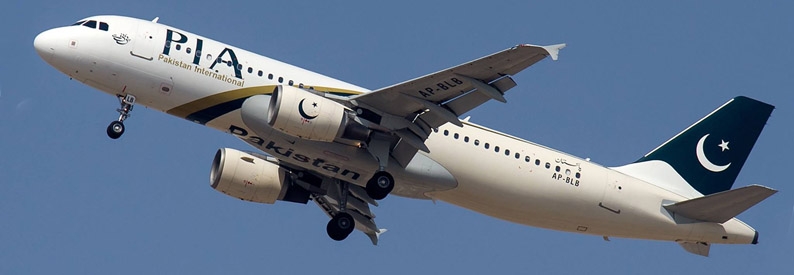PIA Seeks to Resume European Flights Amid EU Ban Lift Efforts

Pakistan International Airlines (PIA) is making significant strides toward resuming operations to European airports, following years of restrictions imposed due to safety concerns. The flag carrier was placed on the European Union (EU) blacklist in 2020 after multiple safety failures were identified, including the employment of unlicensed pilots. This ban severely impacted PIA’s ability to operate flights to Europe, hindering its growth and affecting Pakistan’s aviation reputation.
In November 2023, the EU Air Safety Committee conducted a thorough audit of PIA and the Pakistan Civil Aviation Authority (PCAA). The inspection revealed critical issues, such as deviations from established safety procedures and significant understaffing in the Flight Standards Directorate. Despite being staffed by technically skilled professionals, the PCAA struggled to maintain adequate oversight, leading to the continuation of the EU ban in June 2024. The EU Commission determined that there were insufficient grounds to remove PIA from the prohibited list, disappointing the PCAA, which had hoped for clearance to resume European flights.
Undeterred, the Pakistani government is intensifying its efforts to lift the ban as PIA moves closer to a proposed privatization. According to reports from View from the Wing, multiple technical sessions have been held recently between Pakistan’s CAA and EU officials. These sessions focused on the necessary steps to lift the no-fly ban, with PIA providing progress reports that highlight meeting all targets set by the EU and UK authorities. PIA officials have expressed optimism that the ban will be lifted soon, evidenced by the airline’s proactive measures, such as issuing tenders for inflight catering services at Manchester (MAN) and Birmingham (BHX) airports. These cities are key international destinations with large Pakistani diasporas, making them strategic locations for PIA’s return to Europe.
The reinstatement of European flights is crucial for PIA’s revival, which has struggled since the EU ban was enforced. Resuming operations to Europe is expected to significantly boost the airline’s revenue and contribute positively to Pakistan’s economy by increasing tourism and business travel. Additionally, lifting the ban would restore PIA’s reputation and competitiveness in the global aviation market.
The original EU ban was a response to serious safety concerns highlighted by the tragic crash of PIA flight PK8303, an Airbus A320, in Karachi on May 22, 2020. This incident prompted the European Union Aviation Safety Agency (EASA) to blacklist PIA, followed by similar actions from the UK’s Civil Aviation Authority and a downgrade of Pakistan’s aviation safety status by the US Federal Aviation Administration (FAA). These measures were aimed at ensuring passenger safety and improving aviation standards within Pakistan.
As part of its “Journey 2030” strategy, Etihad Airways is expanding its services and fleet, reflecting a broader trend of Gulf airlines enhancing their global reach. Similarly, PIA’s efforts to lift the EU ban align with its goals to modernize and improve its operations. The potential lifting of the ban would not only benefit PIA but also strengthen Pakistan’s position in international aviation.
PIA’s renewed focus on meeting EU safety standards and the ongoing negotiations with aviation authorities indicate a positive trajectory towards restoring its operations in Europe. The airline’s commitment to addressing past shortcomings and enhancing its safety protocols is essential for regaining trust and expanding its market presence.
In conclusion, Pakistan International Airlines is actively working to overcome the challenges posed by the EU ban through strategic negotiations and operational improvements. The anticipated lifting of the ban would mark a significant milestone for PIA, enabling it to resume flights to Europe and contribute to the growth of Pakistan’s aviation sector. As the privatization process progresses, PIA’s ability to meet international safety standards will be pivotal in securing its future as a leading global airline.
